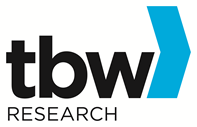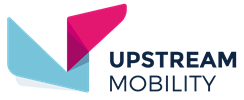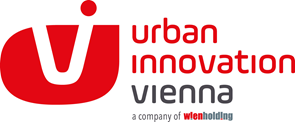AIT | Brussels Mobility | TØI | MO.Point | Ruter |tbw research | Upstream | UIV | WIENER LINIEN
AIT Austrian Institute of Technology GmbH
The AIT Austrian Institute of Technology is Austria’s largest non-university research institute. At the Center for Mobility Systems, around 100 experts are developing holistic mobility solutions for the future based on the interrelation of passenger mobility, mobility of goods, and transport infrastructure. Efficiency, safety, ecological sustainability and the human factor are at the heart of the research and development efforts.
In the project, AIT contributes to simulation and impact assessment of mobility services, especially with respect to dynamic pricing, incentives and dynamic routing.
Bruxelles Mobilité
Brussels Mobility
Brussels Mobility is part of the Brussels Regional Public Service and is the regional authority responsible for the general public and private transportation policies and for providing as well as operating the road and public transport facilities. Brussels Mobility is currently elaborating the new Urban Mobility Plan – Good Move – for the Brussels-Capital Region, defining the mobility strategy for the next 10 years.
In that context, MaaS development appears as a relevant tool, providing efficient alternative solutions to the use of individual cars in areas where public transport is less available. Faced with the multiplication of mobility operators, a rapidly changing landscape, and the fact that Maas development has so far been driven by the private sectors for the most part, with goals that might differ from the public authority (leading to new services competing with public transport rather than complement it, for example), MaaS reveals itself as a great challenge as well as a major opportunity for Brussels Mobility.
The main tasks within OptiMaaS include expertise in urban planning, policy making and collaboration within OptiMaaS-Labs.
Institute of Transport Economics (TØI)
TØI is a national research centre located in Oslo, Norway. TØI’s mission is to develop and disseminate transportation knowledge with scientific quality and practical application. TØI has a multidisciplinary research body, with a 80-strong research staff specialized in the societal aspects of transport. Major clients are the Norwegian Ministry of Transport and Communications, the Norwegian Public Roads Administration, the Research Council of Norway, and the European Commission. Having participated in a large number of projects under the Framework Programmes of the European Union, TØI emphasises the importance of international research cooperation in the transport area and methods, assumptions and results are accounted for and made public.
In OptiMaaS TØI will bring expertise in Urban Planning, Policy Making and collaboration within OptiMaaS-Labs economic analysis and evaluations.
MO.Point Mobilitätsservices GmbH
MO.Point connects city planning and habitation with personalized mobility services: The company develops mobility concepts for city quarters and real estates and brings in especial expertise in the planning and implementation of e-mobility sharing-services. Once implemented MO.Point operates these sharing services: Registered end-consumers can purchase a package of mobility services and get access to different sharing-vehicles just in front of the door, such as e-bikes, e-scooters or e-cars.
Within the OptiMaaS project, MO.Point will investigate the application of mobility as a service in the urban periphery. It seeks to identify new business models and partnerships (PPP) suited for the application of shared mobility in urban and semi-urban environments. Further, MO.Point aims to deepen its urban planning tools and knowledge, and it will contribute to recommendations for policy making in order to improve the mobility provision in semiurban areas.
Ruter As
Ruter is Norway’s largest Public Transport Authority (PTA) serving vast rural and urban areas within the Norwegian counties Oslo and Akershus. Ruter plans, coordinates, orders and markets public transport in the two counties. Oslo includes buses, the Oslo Metro, Oslo Trams, and ferry services. All operative service is performed by various operating companies that work by contract for Ruter. Ruter also holds agreements with the Norwegian State Railways concerning the regulation of fares on commuter train services operated within the two counties.
With OptiMaaS Ruter seeks to explore and pilot a concept of mobility as a service (MaaS) within the area of property development. The concept will include a high-availability and flexible service with access to multiple modes of transport, such as public transport, car pool, loan bikes, electric bicycles, car rental, taxi etc. All in one service that is conveniently offered to the residents as a part of the accommodation. The purpose of the testing is to identify new attractive mobility services that enables a continued good life for the regions citizens without ownership of private cars.
tbw research GesmbH
tbw research combines R&D activities of specific sectors such as smart mobility, energy, construction and water management, thus streamlining and optimizing the management and operation of funded research projects. tbw research has the lead of the OptiMaaS project being responsible for the project management and dissemination as well as partipating in further tasks like Identification of the changing and diverse user needs; developing decision support for optimized mobility as a service and evaluating the impact of (Austrian) MaaS-measures on the city.
Upstream – next level mobility GmbH
Upstream – next level mobility GmbH (founded in 2016) has developed and is currently running a fully market proven MaaS system for Wiener Linien (Viennas main public transport operator), Graz (Austria) and has signed contracts with major public transport operators like Hamburger Hochbahn (Germany). Upstream developed out of a research project (SMILE, winner UITP award 2015) and faces hand-on challenges concerning framework of MaaS implementation but has also outstanding experience in the field of development of MaaS-solutions. upstream-mobility.at
In OptiMaaS Upstream will contribute to business models and Public-Private-Partnership analysis, development of individualized MaaS-IT-solutions like dynamic pricing and dynamic routing, click-test dummy for MaaS-IT-solution experiences and examples and strategies for urban planners and city managers for using mobility data as steering and planning instruments.
UIV – Urban Innovation Vienna GmbH (UIV)
Urban Innovation Vienna is the city’s leading thought incubator for analysis and consultancy on contemporary and upcoming urban issues since 2017. The core mission of UIV is to assist in accomplishing future urban tasks with interdisciplinary expertise. UIV relies on broad technical know-how, international contacts and networks, and innovative process and problem-solving skills. With the Energy Center, UIV offers an independent competence center that supports the city of Vienna and its enterprises in achieving their ambitious energy and climate protection goals.
Since 2017, expert advice on mobility management measures is a new area of responsibility, supporting city departments and project developers in the planning and implementation of new construction projects. The Energy Center acts as an interface between city, economy and science. It organizes tailored exchanges of experience on innovative energy and mobility solutions – from excursions to round tables -, bringing together the different stakeholders.
UIVs main contribution within the OptiMaaS project is on the policy level. Detailed mobility concepts with regards to legal, financial and organizational requirements will be developed for selected peripheral areas. After the phase of testing those concepts and evaluating corresponding data, the findings will be used to define recommendations for further MaaS steering policies (in the city of Vienna).
WIENER LINIEN GmbH & Co KG
Wiener Linien is Vienna’s public transport operator and is responsible for some 180 underground, tram and bus lines. Vienna’s underground network extends to 83 kilometers, the tram network comprises around 220 kilometers, which makes it the sixth-largest in the world, and the bus lines travel a network of 850 kilometers.
Wiener Linien is committed to providing the best possible service, and to thereby steadily increasing the public transport share of city traffic. Due to its role as public transport operator, Wiener Linien in OptiMaaS is contributing with insights to the development of steering and planning instruments for both policy makers and planners.







